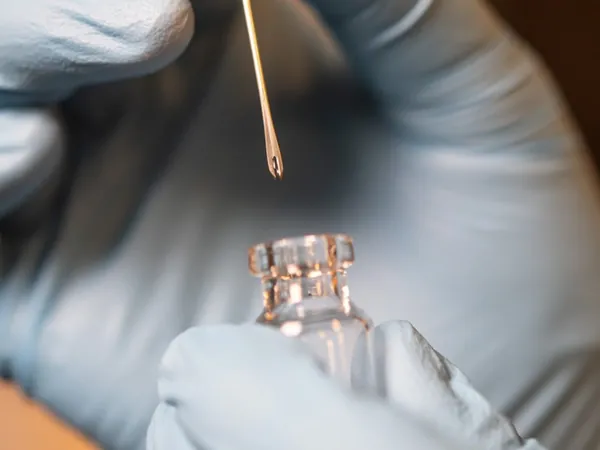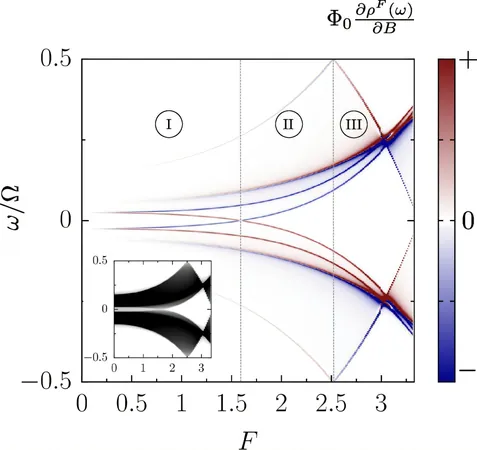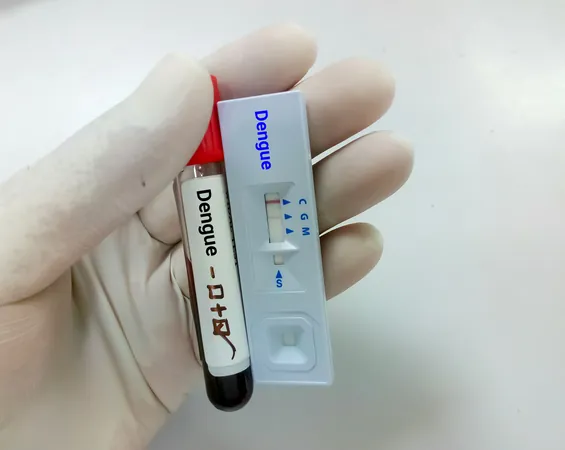
New Mpox Vaccine Study Kicks Off Amid Outbreak in DRC
2025-09-10
Author: Wei Ling
In an urgent response to the ongoing Mpox outbreak in the Democratic Republic of the Congo (DRC), groundbreaking research is set to commence that will shed light on the effectiveness of the LC16m8 vaccine, specifically within African communities already impacted by the deadly virus.
Dr. Richard Hatchett, CEO of the Coalition for Epidemic Preparedness Innovations (CEPI), emphasized the significance of this vaccination campaign, stating, "This provides a crucial opportunity to assess how well the proven LC16m8 vaccine can prevent Mpox in high-risk settings, especially among children." The insights gained could significantly influence future vaccination strategies.
The LC16m8 vaccine, a live-attenuated solution manufactured by Japan's KM Biologics, has a long-standing history of use against smallpox and has previously demonstrated its safety and effectiveness during past Mpox outbreaks in Japan, even among individuals with controlled HIV. As a direct response to the outbreak, Japan is donating three million doses of this vaccine to protect vulnerable populations in the DRC.
With regulatory approvals in the pipeline, an international consortium is gearing up to leverage the vaccination campaign to collect real-world evidence on the vaccine’s efficacy and safety within sub-Saharan Africa, particularly for infants and children aged one and older.
CEPI has pledged up to $10.4 million to support this study, which is poised to begin this Autumn. The International Vaccine Institute (IVI) will act as the study's sponsor, with the DRC's Institut National pour la Recherche Biomédicale (INRB) as a co-sponsor. This collaboration is supported by the DRC Ministry of Health and aims to enhance local scientific capacity for addressing health crises.
The research will focus on tracking Mpox infections among vaccinated individuals in high-prevalence health zones in Équateur province. Safety data will also be meticulously monitored, providing an invaluable resource for future Mpox strategies.
As work progresses, findings may dictate which demographics would benefit most from vaccination, potentially guiding immunization policies not just in the DRC, but across other Mpox-endemic regions.
His Excellency Samuel Roger Kamba, DRC's Minister of Health, highlighted the critical nature of this study, calling it a historic opportunity for Africa to lead in collecting essential data on vaccine use during an outbreak.
Dr. Manabu Sumi from Japan's Ministry of Health expressed optimism for the LC16m8 vaccine to bolster defense against Mpox, noting it is crucial for protecting individuals of all ages.
The Africa CDC's Director General, Dr. Jean Kaseya, underscored the study's importance in safeguarding vulnerable populations, especially children, as Africa navigates the challenges posed by Mpox.
As scientists work to establish a robust safety and effectiveness profile for LC16m8, this research not only aims to aid current Mpox outbreak management but also equips communities with the knowledge and experience to handle future health emergencies.
Mpox, a contagious disease caused by the Mpox virus, can lead to severe symptoms, including fever and a painful rash, and in extreme cases, it can be deadly. Recently, the World Health Organization classified the ongoing Mpox outbreak as both a continental and global health emergency—a stark reminder of the urgent need for effective vaccines and robust health systems.
CEPI is dedicated to advancing vaccine research to ensure better access and comprehension of Mpox vaccines, not just for immediate response efforts, but also for future protection against outbreaks.
With the stakes high as Mpox continues to pose significant health challenges, this study represents a critical step towards fortifying the continent's response to infectious diseases.



 Brasil (PT)
Brasil (PT)
 Canada (EN)
Canada (EN)
 Chile (ES)
Chile (ES)
 Česko (CS)
Česko (CS)
 대한민국 (KO)
대한민국 (KO)
 España (ES)
España (ES)
 France (FR)
France (FR)
 Hong Kong (EN)
Hong Kong (EN)
 Italia (IT)
Italia (IT)
 日本 (JA)
日本 (JA)
 Magyarország (HU)
Magyarország (HU)
 Norge (NO)
Norge (NO)
 Polska (PL)
Polska (PL)
 Schweiz (DE)
Schweiz (DE)
 Singapore (EN)
Singapore (EN)
 Sverige (SV)
Sverige (SV)
 Suomi (FI)
Suomi (FI)
 Türkiye (TR)
Türkiye (TR)
 الإمارات العربية المتحدة (AR)
الإمارات العربية المتحدة (AR)